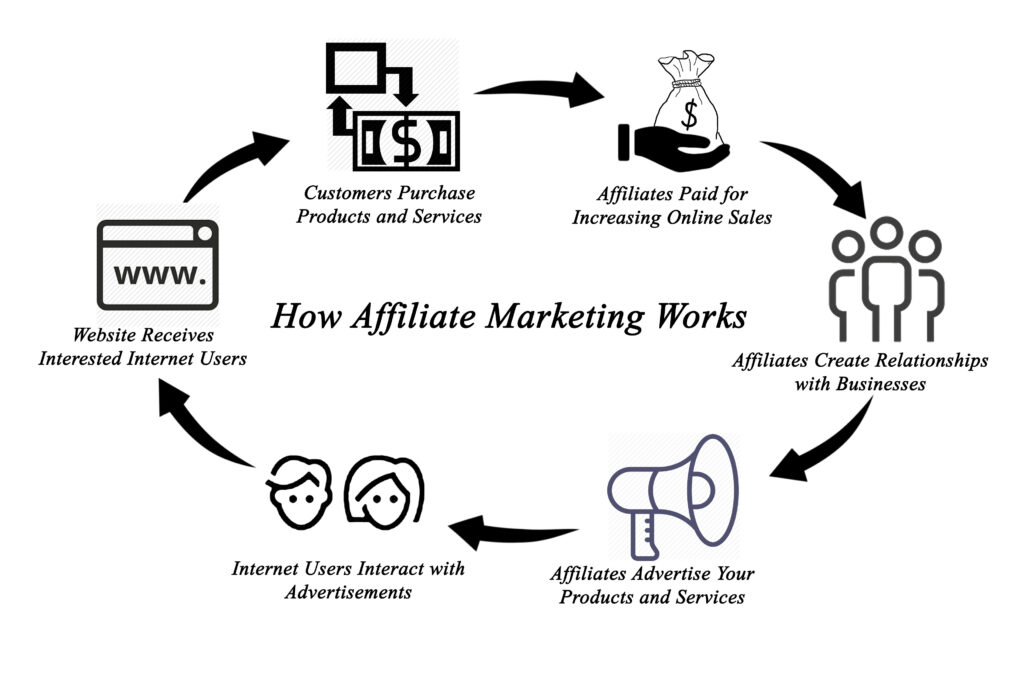
Click fraud has been a problem since the early days of pay-per-click (PPC) advertising. Whether you call it PPC fraud, advertising fraud, or something else entirely, it is a crime that costs advertisers billions of dollars annually. Right now, one of the hottest scams in ad fraud targets affiliate marketing programs.
The problem is so serious that a prominent German cybersecurity firm has taken it upon itself to begin warning companies with active affiliate marketing programs. Their warning is straightforward and simple: fraudsters are using affiliate marketing opportunities to generate tons of fake clicks that do nothing but rob advertisers blind.
Table of Contents
Affiliate Marketing Basics

Source: devindorosh.com
Affiliate marketing is a legitimate way to enlist internet freelancers to help market products or services. As a business owner, you would encourage these affiliates to create websites featuring content appropriate to whatever it is you sell. The affiliates would also place your ads on their sites.
Assuming you base your ads on the PPC model, your affiliates would get paid every time one of their visitors clicked on your ads. It would be in their best interests to generate compelling content that brings visitors to their sites and convinces them to click.
Affiliate marketing is inexpensive marketing. When it is done right, it can also be quite profitable. Unfortunately, click fraud scammers have figured out how to take full advantage of affiliate marketing’s inherent weaknesses to perpetrate click fraud.
Sign Up Like a Legit Affiliate
So, how do fraudsters pull it off? They do not immediately jump in to defrauding advertisers. Instead, they start by building what appears to be a legitimate affiliate business. They make it look like they are on the level. That way, they do not raise suspicion when they sign up with a new affiliate program.
Scammers prey on affiliate programs offered by companies that don’t make any effort to search for click fraud, let alone stop it. Finding a potential victim is an open invitation to sign up and settle in. Then it is a waiting game. As soon as the scammer is comfortable that he can pull off the scam without being caught, it begins.
Setting Up Fake Websites

Source: digiwonk.gadgethacks.com
The next step is to set up a series of fake websites through which the PPC click fraud will be perpetrated. The sites are fake in the sense that they are not really designed to do anything meaningful. The scammer couldn’t care less if a site shows up on search engine results pages (SERPs). There is never any intent to create relevant content or drive traffic from organic searches.
A scammer’s only intent is to create websites on which affiliate ads can be placed. The more sites and links, the more opportunities to generate fake clicks. Every click means more money in the scammer’s pocket.
Believe it or not, it is not even unusual for a scammer to simultaneously rip off multiple advertisers on a single site. And if a scammer has any reason to believe that a particular site is suspect, no worries. He takes it down and sets up a new one.
Call In the Click Bots
The next step is to launch a series of click bots designed for one purpose: to continually generate fake clicks by way of the fake websites. Fraud Blocker, a company that makes click fraud detection software by the same name, says click bots are simple in principle but can be sophisticated in operation.
A click bot is a piece of software. Its programming might be as simple as language that forces it to focus on a single site and all the ads found on it. On the other hand, it could be sophisticated enough to continually scan large numbers of websites in search of ads it can click.
One way or another, the net effect is the same. Click bots make scammers tons of money by continually clicking on the very same ads their owners have placed on the fake sites. The whole click bot concept could be considered brilliant if it were not both unethical and illegal.
A Special Kind of Betrayal
Every form of click fraud is despicable. It destroys marketing budgets and ruins company reputations. But there is something unique about click fraud when it is perpetrated through affiliate marketing. There is a special kind of betrayal involved. If you have fallen victim to it yourself, you know.
Businesses establish affiliate marketing programs with the best of intentions. They need help marketing. Without the resources to hire and maintain a top-notch marketing staff, their options might be limited. Affiliate marketing is an easy-to-implement and affordable option.
Companies need to trust their affiliates to do right by them. But it is a two way street. They also need to do right by their affiliates. That means offering fair compensation for the time and effort they put in. When a company actually does right by its affiliates only to find itself being stabbed in the back by scammers, the feelings of betrayal a very real.
Stopping Fraud Requires Effort

Source: arkoselabs.com
Everything discussed thus far leads to an inevitable question: how do companies stop click fraud from occurring within their affiliate marketing programs? Unfortunately, the first step is making the choice to not trust anyone. Companies must assume that a certain percentage of their affiliates are going to attempt to rip them off.
With that as a foundation, stopping fraud requires effort. It requires tracking UTM parameters to better understand traffic. It requires looking at all sorts of analytics that detail where traffic is coming from, what it’s doing, etc.
A good click fraud prevention software package can make the job easier through automation, quarantining, and read flag notifications. But ultimately, stopping click fraud in the affiliate marketing space requires human decisions and manual actions.
Affiliate marketing click fraud is the latest and greatest scam being perpetrated against online advertisers. If your company operates an affiliate marketing program, be on the lookout for fraud. Your diligence is really your best defense against those ruthless online criminals.







